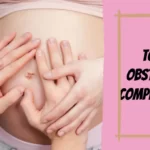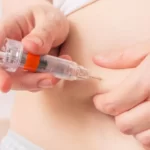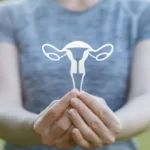
Although there’s no exact way of knowing when can a woman get pregnant? there are statistics that show how long it usually takes couples to conceive. Most couples conceive within three months. It could take more time if you’re above the age of 35, have certain habits that might affect your fertility (like smoking), or have a medical condition that impairs fertility. So here are the figures:
Conception Statistics
According to the data available on American Pregnancy Association:
- 30 percent get pregnant within the first cycle (about one month)
- 60 percent get pregnant within three cycles (about three months)
- 80 percent get pregnant within six cycles (about six months)
- 85 percent get pregnant within 12 cycles (about one year)
- 91 percent get pregnant within 36 cycles (about three years)
- 93 to 95 percent get pregnant within 48 cycles (about four years)
About 90 percent of couples conceive naturally. The remaining 10 percent are eventually diagnosed with infertility. Once couples diagnosed with infertility get professional help and/or medical treatment, a good number of them do manage to get pregnant. The rest may have to consider other options, like sperm donation, surrogacy, or adoption.
An infertility diagnosis means one year of trying without success. If you’ve tried to get pregnant for a year, it’s recommended to seek treatment. If you’re 35 or older, you don’t have to wait that long. See a fertility specialist if you’re not pregnant within six months.
On average, a woman’s fertility peaks when she’s 24 and begins to drop in her mid-30s. Although getting older makes it harder to get pregnant, many women have healthy, successful pregnancies well into their 40s.
What are the Reasons for Not Getting Pregnant?
There exist numerous reasons why an individual may encounter difficulties when attempting to conceive. A few possible explanations include:
- Complications with sperm vitality
- Difficulties with ovulation
- Advanced age
- Abnormal shapes of the uterus
- Blockages of the fallopian tubes
- Stress and unexplainable infertility
Furthermore, according to the American Society for Reproductive Medicine, the quality and quantity of eggs may have a significant impact on fertility, as well as an individual’s probability of becoming pregnant.
Know Your Body Before Asking Yourself When Can I Get Pregnant
You should know your body functions first before asking this question when can I get pregnant. You should get an ultrasound of your ovaries and a blood test. You also need to get your uterus and fallopian checked for any kind of physical problem via hysterosalpinography. Likewise, you can also get your uterus, ovaries and fallopian tubes checked via laparoscopy. If you are having irregular and painful periods, menstrual periods, fibroids, polycystic ovaries, pelvic inflammatory disease then you need to get your check done through gynecologist
There are a number of women who are suffering from hyperthyroidism and hypothyroidism. These women are having problems in conceiving a baby because of lack of ovulation and irregularity in menstrual cycle. So if you really want to find the solution of when can I get pregnant? Then pay attention to your body functions and ask your doctor to help you to find out they way to conceive a baby.
When Can a Woman Get Pregnant After Birth Control?
When can a woman get pregnant after birth control is no more a mystery because doctor says a woman should stop taking birth control at least before 6 months from the time when she wants to have a baby. However, conception after birth control totally depends on how fast a woman’s menstrual cycle returns to normal. Some women get pregnant as soon as they stop taking birth control, while other needs time to achieve pregnancy.
Related: When to Stop Birth Control Pills Before Pregnancy?
When Can a Woman Get Pregnant After a Miscarriage?
When can a woman get pregnant after a miscarriage is a critical question. It’s because after a miscarriage, you need some time to recover from the miscarriage. It is wise to get consultation about achieving a healthy pregnancy after a miscarriage. Also, bear in mind that different women have different reasons of miscarriage, so it is important to carefully understand the reason why you had a miscarriage in order to conceive again without any complication.
Tips to Increase the Chances of Getting Pregnant
Please allow us to provide some strategies to improve your chances of getting pregnant. While we can’t promise that you’ll get pregnant the next month, knowledge is power, so learning more could be beneficial to you.
Right Age
In general, the optimal age range for a woman to get pregnant is in her 20s and early 30s.
It’s important to note that fertility declines as women age, and the risk of complications during pregnancy and childbirth increases. Women who delay pregnancy until their late 30s or 40s may need to seek medical assistance, such as fertility treatments or prenatal testing, to increase their chances of having a healthy pregnancy and baby.
Track Your Menstrual Cycle
Understanding your menstrual cycle is key to optimizing your chances of getting pregnant. Use a period tracking app or calendar to help you determine when you’re ovulating, which is when you’re most fertile.
Time Intercourse Accordingly
Once you have a better understanding of your menstrual cycle, you can time intercourse to coincide with ovulation. Aim to have sex in the days leading up to ovulation, as well as on the day of ovulation itself, to increase your chances of conceiving.
Stop Taking Birth Control
If you have been taking birth control or contraceptives, you should stop taking them as soon as you can. It is advised that a couple trying to conceive should discontinue taking birth control at least before 6 months from the time when they want to try for a baby. It’s because your body needs some time to get ready for a baby, and your menstrual cycle takes time to return to its normal routine. However, some women are lucky enough because their menstrual periods return to normal quickly.
Check Your Ovulation Calendar
The ovulation and fertility calculators determine when you will ovulate by counting back 14 days from the day you anticipate your next period.
The days before ovulation, before the egg is released from the ovary, are the most fertile phase in your cycle. Your fertile phase covers the day you ovulate and the five days before, but bear in mind that the final three days of this period are when you’re most likely to become pregnant. The egg only lives after ovulation for 24 hours, whereas sperm might remain fertile in the fallopian tubes for two to three days. Because of this, we advise couples to have sex every two days when a woman is in her fertile phase. This indicates that when the female ovulates, sperm will be available and waiting for the egg. You will likely have missed the chance to become pregnant that month if you wait until the female has ovulated before engaging in sexual activity.
You should wait two weeks following ovulation to take a pregnancy test to see whether you are pregnant.
Check out further techniques to identify your fertile days and raise your chances of getting pregnant. Learn how to track your basal body temperature, utilize an ovulation prediction test, and monitor changes in cervical mucus.
Related: Ovulation Calculator I Know Your Most Fertile Days
Use the Right Sex Position
When you are learning how to conceive, you will learn about those sex positions that you should use to have sex to ensure conception. There are many positions that increase your chances of having a baby within a good period of time. These positions include missionary position; elevate the hips, side-by-side, rear-entry position etc. You should consult your doctor in order to find out more about these positions.
Get Pre-pregnancy Consultation
It is another important thing that you should do before start trying for a baby. Your health care provider will assess your chances of having a baby. He/she will help you determine your ovulating time. Your doctor will also help you identify any health complications. Your doctor will also devise a well-balanced pregnancy diet plan for you. There are various other important things that are the part of pre-pregnancy consultation. In short, during your pre-pregnancy consultation sessions, your doctor will guide you about how to conceive without complications.
Foods to Boost Pregnancy
It’s crucial to keep in mind that there is no secret diet that will cause you to become pregnant, but food and lifestyle choices do have a big influence on both women and men’s reproductive health. Through their effects on your stomach, blood flow, hormone levels, and general health, the foods you eat, combined with other variables like lifestyle and stress levels, can increase fertility. You can include foods like dark leafy greens, beets, sweet potatoes, beans and lentils, sunflower seeds, cod liver oil, sardines, avocados, watermelon, pomegranates, berries, quinoa Greek yogurt and cheese, salmon, asparagus, walnuts, egg yolks, etc.
Adequate Prenatal Multivitamins and Minerals
Prenatal multivitamins play important roles in women’s reproductive health. They’re essential for many functions, including menstruation and ovulation, thyroid function, energy production, immune function, egg quality and maturation, etc. For this reason, adequate vitamin and mineral intake is critical when trying to create the right environment for a healthy pregnancy.
Use a Sperm-Friendly Lubricant
Look for a lubricant with hydroxyethylcellulose as its base. These lubricants are the closest in consistency and viscosity to natural vaginal mucus and do not impair sperm movement. Look for lubricants that are paraben- and fragrance-free. There are lubricants that are labeled as “sperm-friendly” or “fertility-friendly.” The Food and Drug Administration must review certain lubricants before they may be sold (FDA). Natural or organic lubricants are not subject to FDA clearance.
Related: Related: Top Sperm-Friendly and Natural Lubricants for Fertility
Being Active and Exercising
Exercises involving deep breathing and stretching are helpful in reducing stress and anxiety, which are detrimental to conception. Therefore, being active and exercising might increase your chances of getting pregnant. Those who routinely engage in moderate exercise become pregnant more quickly than women who don’t.
Avoid Stress to Conceive
Stress has negative impact on your ability to get pregnant due to which you should reduce stress levels. You should make good changes in your lifestyle to avoid stress. For example, if your job is hectic, you should take vacations to get enough rest. You should avoid noisy places to keep your nerves calm. There are many other things that you can do to avoid stress. You can do yoga to reduce stress levels. A light exercise or walk every day can help you a lot in reducing stress levels.
How to Know If I am Pregnant?
One of the earliest signs of pregnancy is a missed period. If you have a regular menstrual cycle and miss a period, it may be a sign that you’re pregnant. However, it’s important to note that other factors, such as stress or changes in weight, can also cause a missed period. Other early signs of pregnancy can include fatigue, nausea, and breast tenderness.
As pregnancy progresses, other signs and symptoms may become more apparent. Many women experience morning sickness, which can involve nausea and vomiting, particularly in the first trimester. Pregnancy can also cause changes in appetite and cravings for certain foods.
As your body changes to accommodate a growing fetus, you may also experience physical symptoms such as back pain, bloating, and constipation. Hormonal changes during pregnancy can also cause mood swings and emotional changes.
If you suspect that you may be pregnant, the most reliable way to confirm it is with a pregnancy test. These tests detect the presence of the hormone human chorionic gonadotropin (hCG) in your urine, which is produced by the placenta after a fertilized egg implants in the uterus.
Conclusion
The answer to the question when can I get pregnant is very difficult. On the other hand, you can always find the perfect and right time to get pregnant. In some cases, you conceive at least expected time, whereas sometimes the right time appears to be vague. But the practical answer to the question of when do I get pregnant is when you are in the phase of ovulation. For a short period of time, a female is fertile prior to her ovulation cycle. So in order to conceive a baby, you are required to be familiar with your ovulation cycle. You should also be familiar with all the signs and signals which indicates the start of ovulation cycle. One of the sign is the secretion of cervical mucus and if you are secreting this white mucus then it is the perfect time for you to increase the chances of conceiving a baby.
What is the Best Time for a Woman to Get Pregnant?
The best time for a woman to get pregnant is during the ovulation period when the ovary releases a mature egg into the fallopian tube. This usually occurs about 14 days after the first day of the last menstrual period. A woman is most fertile for a few days before and after ovulation, and having sexual intercourse during this time can increase the chances of getting pregnant.
Can a Woman Get Pregnant During her Period?
It is possible for a woman to get pregnant during her period, but the chances are relatively low. Sperm can survive in the female reproductive tract for up to five days, so having sex towards the end of a period or shortly after it ends may result in pregnancy. However, the likelihood of getting pregnant during this time is much lower than during the ovulation period.
How can a Woman Track her Ovulation Cycle?
There are several methods that a woman can use to track her ovulation cycle, including:
1. Keeping track of menstrual cycles on a calendar to identify the approximate time of ovulation.
2. Measuring basal body temperature each morning to detect the slight increase that occurs after ovulation.
3. Checking cervical mucus to look for changes in consistency and amount, which can indicate ovulation.
Can a Woman Get Pregnant After 40?
Yes, a woman can get pregnant after the age of 40, but the chances of conceiving naturally decrease with age due to a decline in the quality and quantity of eggs. Women over the age of 40 may also be at higher risk for complications during pregnancy, including miscarriage and gestational diabetes. However, there are several fertility treatments available that can increase the chances of pregnancy for women over 40.
Can a Woman Get Pregnant if she has Irregular Periods?
Yes, a woman with irregular periods can still get pregnant, but it may be more difficult to track ovulation and predict the best time for conception. In some cases, irregular periods may be a sign of an underlying condition that can affect fertility, such as polycystic ovary syndrome (PCOS). Women with irregular periods who are having difficulty getting pregnant should consult with a healthcare provider to identify any underlying issues and discuss potential treatment options.












